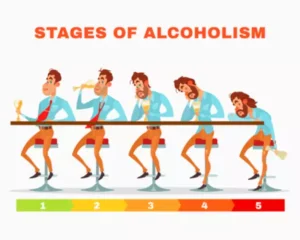
I hope you can find it in your heart to forgive me, but if not, I understand. Living amends is a third option for those in the ninth step of recovery. With this option, the individual in recovery takes steps to improve their relationships and demonstrate their lifestyle change. They may visit family members and friends more often, set aside time to spend with their partner or donate their time to a worthy cause.
How Taking Responsibility Improves Recovery

They may have been hurt in ways that you were not able to identify when preparing to make amends. It’s not one we use too frequently in our everyday language, but it still holds significant meaning. To make amends means to apologize for something you have https://ecosoberhouse.com/article/what-is-the-life-expectancy-of-an-alcoholic/ done or for wronging someone in some way. It means mending, or (quite literally) fixing, the relationship. Children don’t need to hear about the disease of alcoholism or the Twelve Steps. So we can skip the long-winded speeches and just be mom or dad.
What Step in AA Is Making Amends?
When you’re ready to make amends, you can find support to guide you through the process. Connect with 12-Step treatment programs to start planning your recovery. While many people are receptive and supportive to attempts to make amends, some are not. And some people in your life may not be receptive on your timeline. Communicating about the way you harmed others can evoke strong emotions.
Making Indirect Amends
We can also make amends by living very purposefully within the bounds of our principles. For example, if we hurt people with our lying and we cannot make amends without further injuring them, we would make living amends by making a decision to behave and communicate with complete honesty. It would be easy to think there is nothing more WYG can write about guilt and grief. We’ve written about how common guilt is in grief (you wouldn’t believe how many people get the “coulda woulda shouldas”).

The origin of living amends in modern use relates to addiction recovery and substance abuse treatment. However, in the context of grief recovery, David Kessler, in his book Finding Meaning, talks about the importance of living amends as a tool for grief healing. In particular, he discusses how to heal when the person we need to make amends with is no longer living.
Changes in personal behaviors
- You do not get a “get out of jail free” card just for forgiving and accepting yourself.
- It’s a transformational part of addiction recovery that takes courage, self-awareness, and a willingness to change.
- This makes the conversation a group of people talking about the wonders of the world rather than one person seemingly lecturing, even though that’s not your intent.
- I don’t punish them with silence (although I did do that in the past).
- Again, in recovery, your words may not mean as much to some people as you wish they would.
They want to find ways of making up for all their past wrongs, and they don’t want to miss the opportunity to do so once their loved one dies. In these cases, they make promises of cleaning up their act and changing their behaviors to their loved ones just before they die. The time it will take depends on many factors, such as your comfort level, the number of people hurt, and the severity of the damage caused. Just like your substance use in active addiction, your process of making amends in recovery will also be unique. There may be situations where the damage caused by your active addiction is irreparable and making amends is not possible.
The Science of Step 9 AA: How Making Amends Can Help

Making amends won’t necessarily play out like the ending of a Hallmark movie. Sometimes, the outcome can be uglier and downright disappointing. They may refuse to meet at all or refuse to listen to what you have to say.

How Will Making Amends Help My Recovery?








